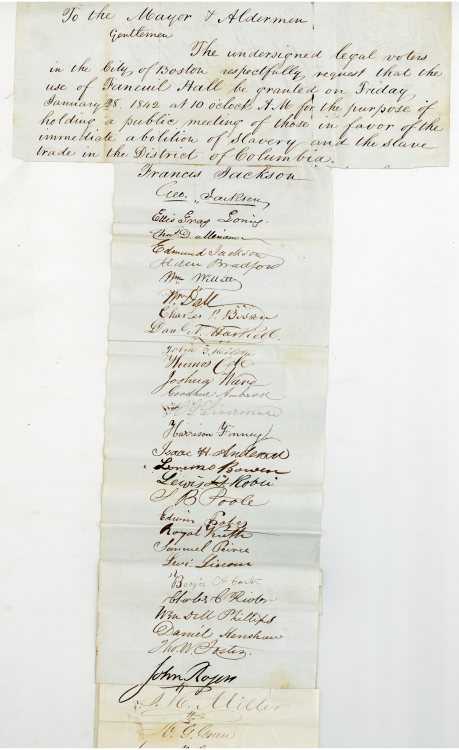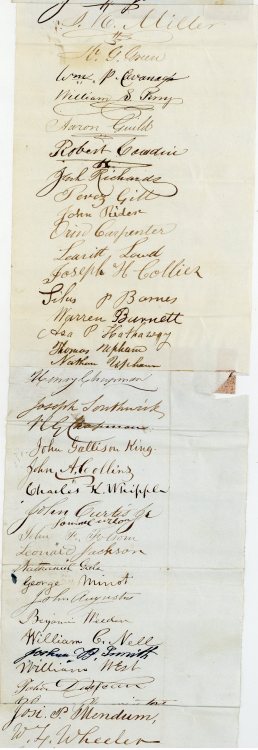#abolitionism
“I am aware that many object to the severity of my language; but is there not cause for severity? I will be as harsh as truth, and as uncompromising as justice. On this subject, I do not wish to think, or speak, or write, with moderation. No! No! Tell a man whose house is on fire to give a moderate alarm; tell him to moderately rescue his wife from the hands of the ravisher; tell the mother to gradually extricate her babe from the fire into which it has fallen; —but urge me not to use moderation in a cause like the present. I am in earnest — I will jot equivocate — I will not excuse — and I will not retreat a single inch — and I will be heard. The apathy of the people is enough to make every statue leap from its pedestal and to hasten the resurrection of the dead.”
William Lloyd Garrison, The Liberator v. 1, No. 1(1 January 1831)

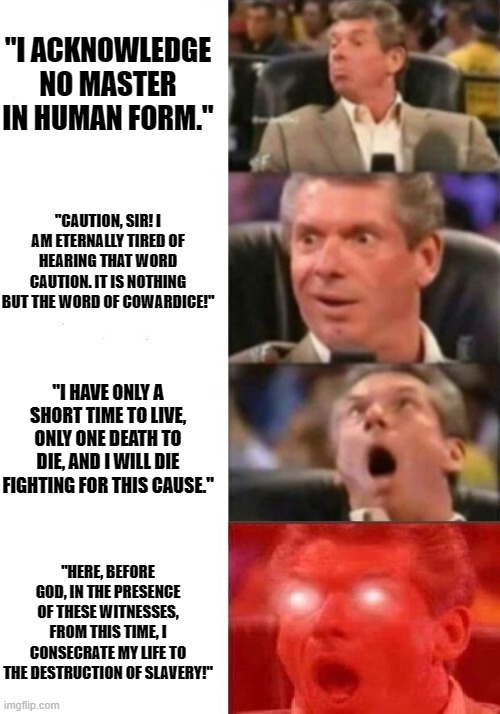





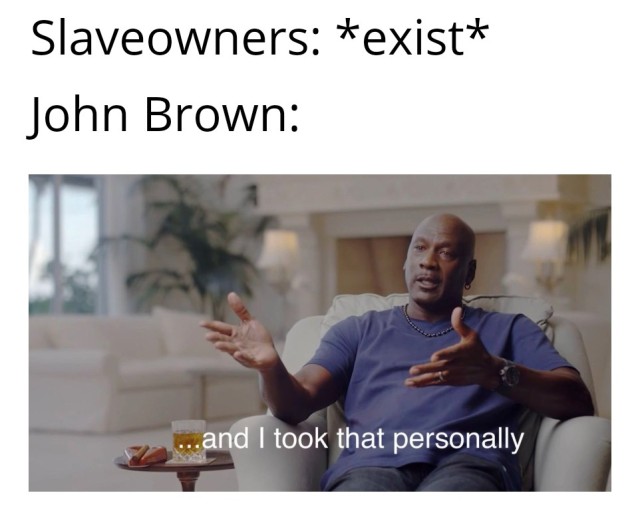

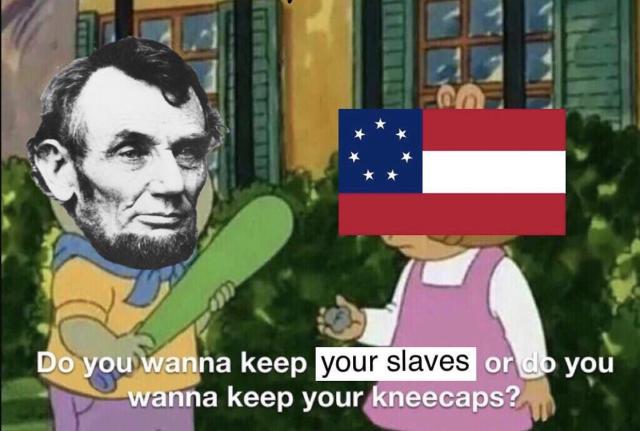
I discovered r/ShermanPosting (a subreddit dedicated to American Civil War and utterly bashing on the Confederacy) and while all the memes are great I am livingfor these abolitionist memes
Btw, the guy with the awesome beard is John Brown, a staunch abolitionist and one of the most based Americans to have ever lived. I highly recommend reading up on him if you’ve never heard about him. His attempt to start a slave revolt, while unsuccessful and got him hanged for treason, was a huge motivating event for the Civil War.
“I practice abolition in my daily life by reproducing a politics of blackness that makes kinship a possibility even as it slips beyond my reach time and again."
-Tiffany Willoughby-Herard, “Abolition and Kinship”
Post link
Stranger Things and the Upside Down Dawn of Donald Trump
In its first minute, Stranger Things had me. From the gasps of a scientist running for his life to the quiet manicured lawns of early-80s suburbia, I felt the vibe of Stranger Things on my skin and in my bones. Like its protagonists, I grew up in a tiny early-80s Indiana town, riding my bike to expansive patches of woods with friends and pretending to spy on the suspicious goings-on of adult people in big, protected buildings. But Stranger Things is not a masterful television show because it depicts the beauty and the bounty of a now-forgotten small-town America. No. What makes Stranger Things a modern classic is its relentless insistence that the terrors happening right now are being entirely missed, and mindlessly supported, by a sleeping, White, public – a strange parallel in the dawning days of Trump.
…
It is not time to unify behind Trump, or to stand behind his storm troopers of White Supremacy. As Malcolm X might say: the chickens have come home to roost. It is no longer appropriate for White people to sleep. It is time to slay the monster of White supremacy once and for all. People of color, Muslims and undocumented men and women, people who have been fighting White supremacy since the beginning, are already experiencing public outbursts of racist language and physical abuse. For all of us, the monster of White supremacy that has been conjured should be terrifying. But the monster that’s conjured is also the monster that’s exposed. And the monster that’s exposed is the monster that’s vulnerable. And the monster that’s vulnerable is the monster that can be killed. …
read more [”Stranger Things and the Upside Down Dawn of Donald Trump” by Heath Pearson]
Post link
Abolitionist Democracy: Dispelling Fear and Loathing in the 2016 Campaign
by Joy James
The rivalries of candidates or parties define the political universe of US democracy. However, electoral democracy has always been in a heated contest to subdue or defeat its opponent— abolitionist democracy. Electoral democracy does not seek equity, i.e., the destruction of the master/mistress-slave relation; rather, it demarcates “winners” as free citizens from “losers” — those locked up or locked out of society and political power. Abolitionist democracy seeks and in its most fierce expressions recognizes that structures of confinement serve as roadmaps on a fabled quest to transform the “nonhuman” or “anti-human” into the “human” citizen. That transformation of course is not what is referenced in calls to “Make America Great Again” or “Stronger Together” or assurances by the FLOTUS and POTUS that the United States still is “the greatest nation on earth.” Democracies are populated by humans (including those not fully recognized as such), hence compassion and ethics remain during election cycles. However, electoral democracy presupposes the “human” and agency to be fixed in the voter-as-citizen. Unlike electoral democracy, abolition democracy focuses upon the struggle for personhood to signify the limits of captivity and indignity, that is, it probes the boundaries of legal violence, or illegal violence enacted with general impunity. Electoral democracy maintains that the political will of the people is expressed in its elections. Abolitionist democracy can argue that the political will of (some) of the people is also expressed in police violence. Both are election campaigns and our policing campaigns are windows into national or factional political will and intent.
Post link
In 1842, a group of Boston abolitionists met at Faneuil Hall “for the purpose of holding a public meeting of those in favor of the immediate abolition of slavery and the slave trade in the District of Columbia. Take a look at this petition for the meeting. Do you recognize any of the names? What do you know about them?
Docket 1842-0049-H, Proceedings of the City Council, 1842, Collection 0100.001, Boston City Archives
Post link





